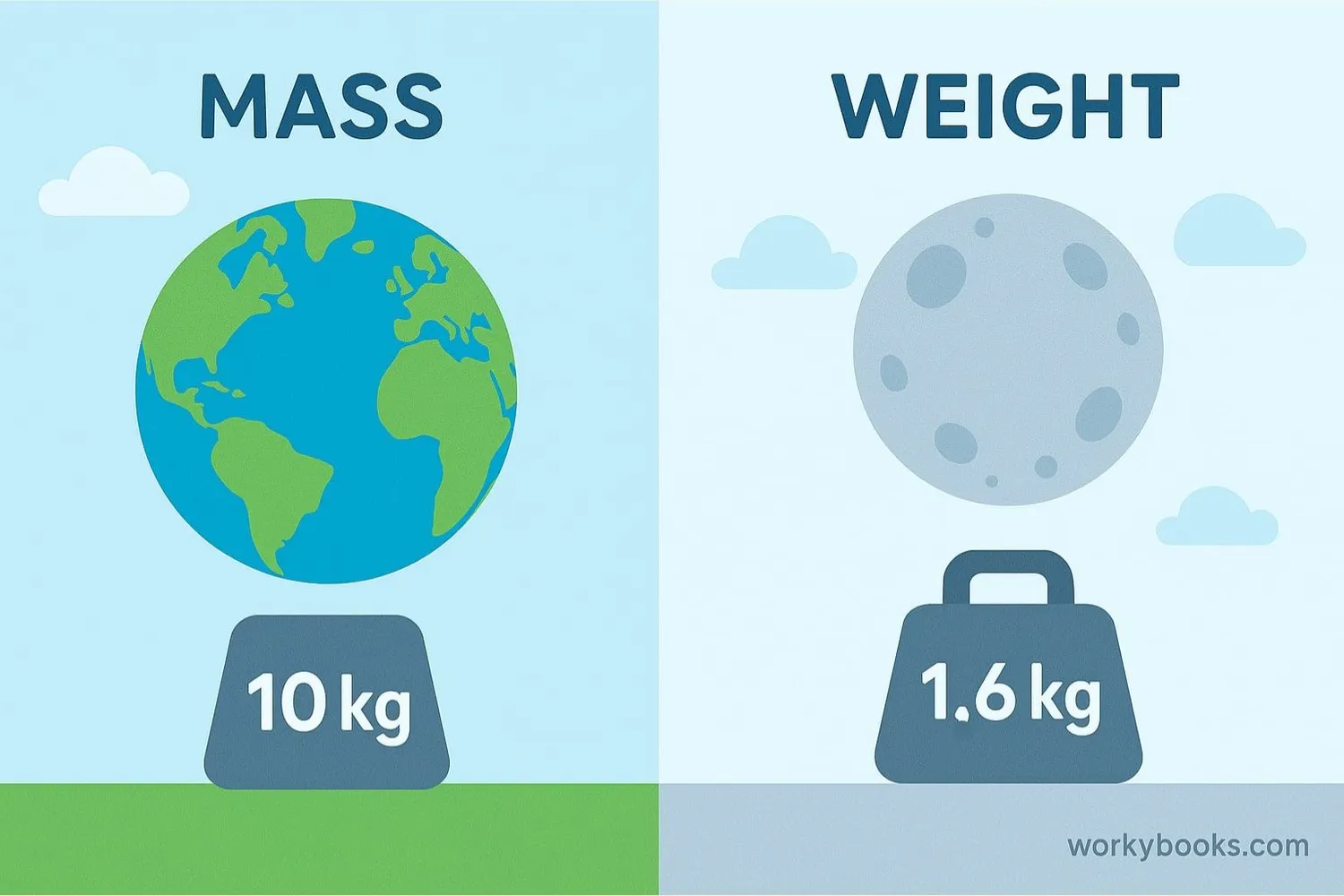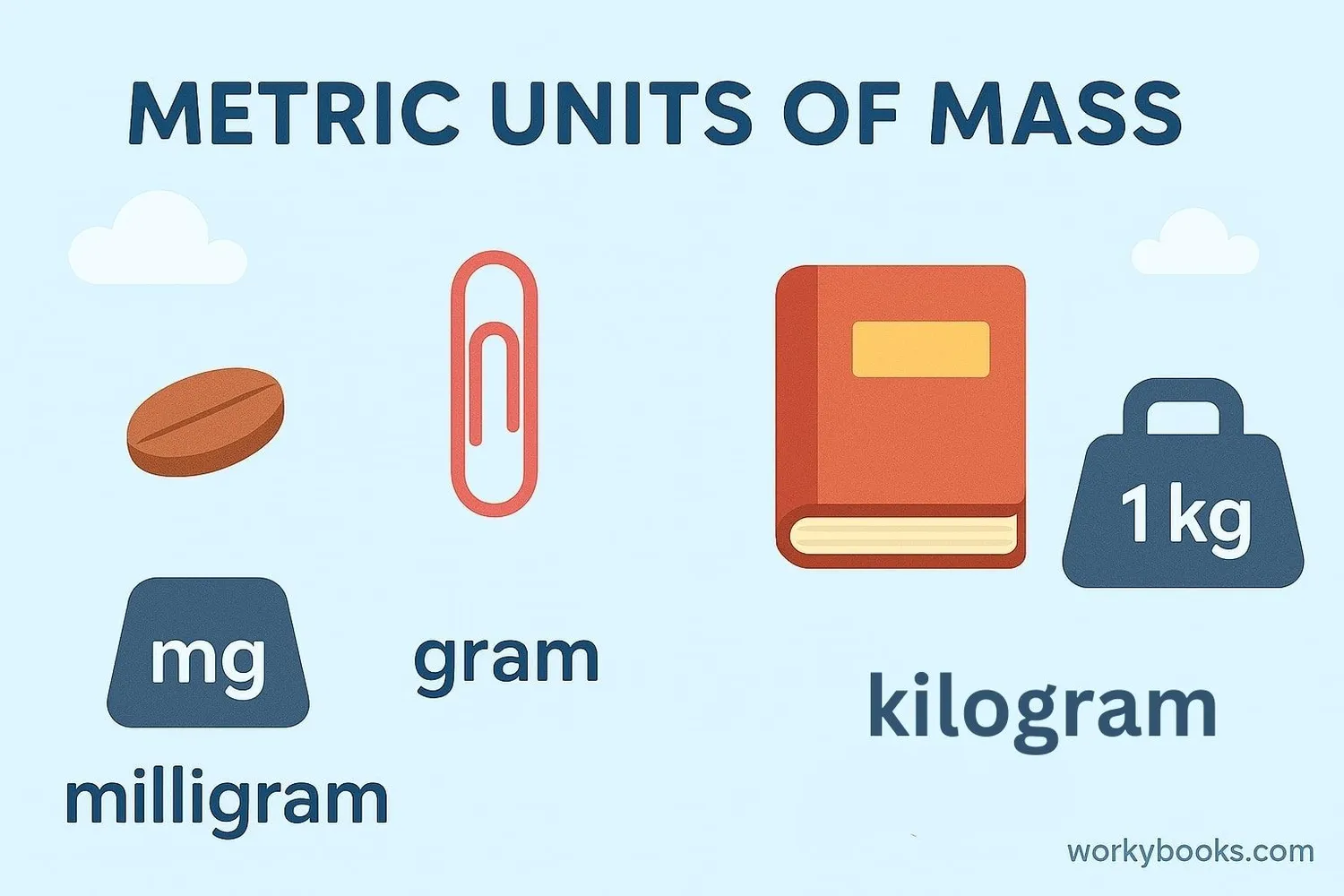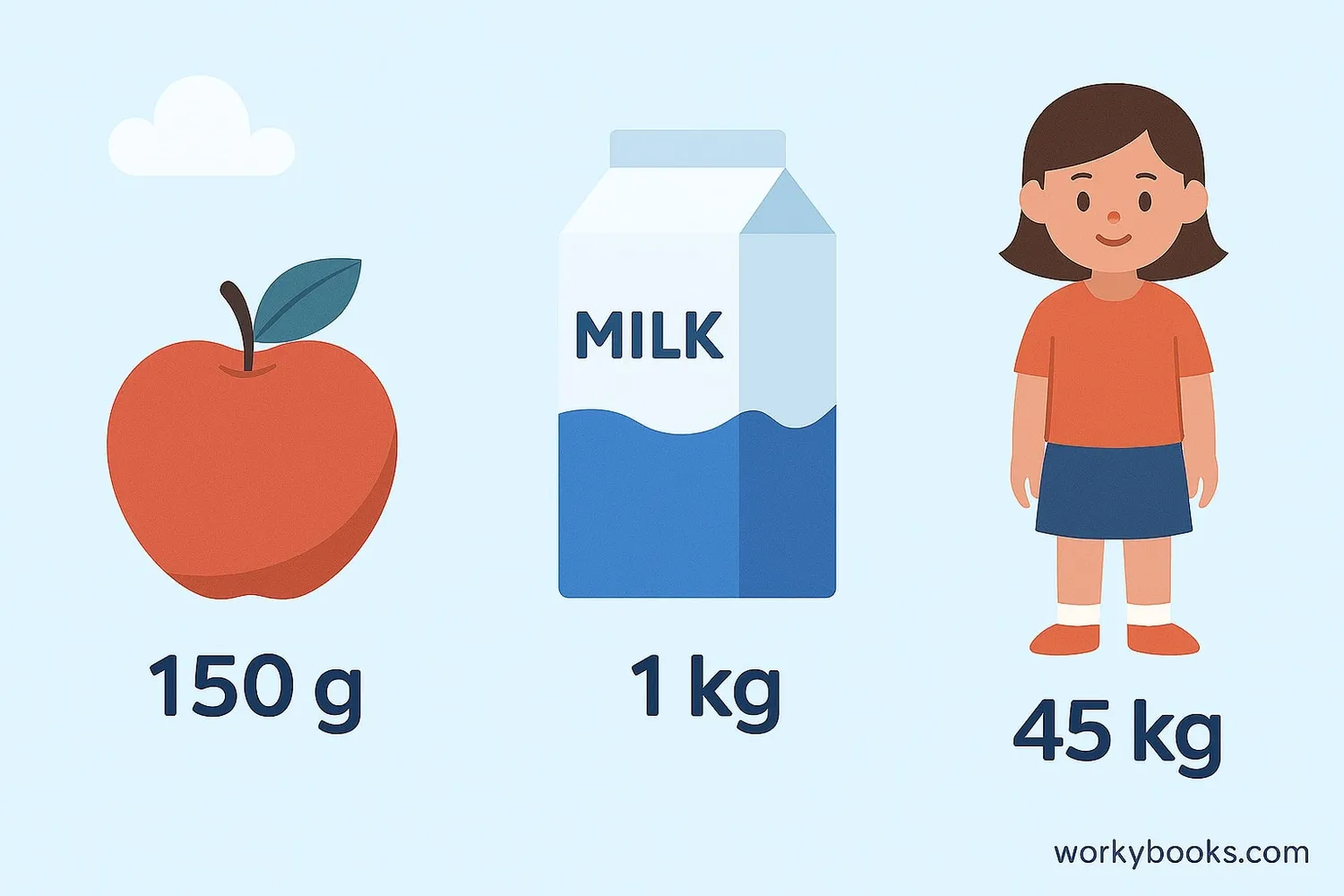Mass - Definition, Examples, Quiz, FAQ, Trivia
Learn about mass, measurement units, and how mass differs from weight with simple explanations and activities
What is Mass?

Mass is the amount of matter in an object. Matter is anything that takes up space and has mass. Think of mass as how much "stuff" is inside an object.
Mass is measured in units like grams and kilograms. A paperclip has a mass of about 1 gram, while a textbook might have a mass of about 1 kilogram.
One important thing to remember about mass is that it doesn't change based on location. Your mass would be the same on Earth, on the Moon, or even in space!
Key Concept
Mass is the amount of matter in an object. It doesn't change with location, unlike weight.
Mass vs Weight

Many people confuse mass and weight, but they are different concepts:
Mass is the amount of matter in an object. It doesn't change with location.
Weight is the force of gravity acting on an object's mass. Weight can change based on location because gravity changes.
For example, an astronaut has the same mass on Earth and on the Moon, but weighs less on the Moon because the Moon's gravity is weaker.
| Feature | Mass | Weight |
|---|---|---|
| Definition | Amount of matter | Force of gravity on mass |
| Measurement Unit | Grams, kilograms | Newtons, pounds |
| Changes with Location | No | Yes |
| Measuring Tool | Balance scale | Spring scale |
Remember
Mass measures "how much stuff" while weight measures "how heavy" that stuff is in a particular location.
Units of Mass

Scientists and most countries use the metric system to measure mass. The basic unit of mass in the metric system is the gram (g). Here are the common metric units for mass:
Milligram (mg)
1/1000 of a gram
Example: A grain of salt
Gram (g)
Basic unit of mass
Example: A paperclip
Kilogram (kg)
1000 grams
Example: A textbook
Conversion Between Units
Conversion Tip
To convert from larger to smaller units, multiply. To convert from smaller to larger units, divide.
Real-World Examples

Let's look at some examples of mass in everyday objects:
Example 1: An apple has a mass of about 150 grams.
Example 2: A liter of milk has a mass of about 1 kilogram.
Example 3: A bicycle has a mass of about 10 kilograms.
Example 4: A car has a mass of about 1000 kilograms (which is 1 metric ton).
Practice estimating the mass of objects around you. Is it closer to a gram, a kilogram, or somewhere in between?
Measurement Tip
We use balance scales to measure mass because they compare an unknown mass to known masses.
Mass Measurement Quiz
Test your knowledge about mass with this 5-question quiz. Choose the correct answer for each question.
Frequently Asked Questions
Here are answers to common questions about mass:
Measurement Trivia
Discover interesting facts about mass and measurement:
The Kilogram Standard
For over 130 years, the official definition of a kilogram was based on a physical platinum-iridium cylinder stored in France. In 2019, it was redefined based on fundamental constants of nature.
Weightlessness, Not Masslessness
Astronauts in space are often called "weightless," but they still have mass. They float because they're in freefall around the Earth, not because they've lost mass.
The Earth's Mass
Earth has a mass of about 5,970,000,000,000,000,000,000,000 kilograms! That's 5.97 × 10²⁴ kg. Scientists calculate this by measuring gravitational forces.
Lightest and Heaviest
The smallest mass measurable is about 10⁻²⁴ grams (yoctogram). The largest mass in our solar system is the Sun, with a mass of about 1.989 × 10³⁰ kilograms.





